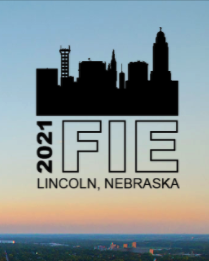Presented in the 2021 IEEE Frontiers in Education Conference
Objective
This research study examined how first-generation college students’ mathematics and physics identity support the development of an engineering identity and how the three STEM identities support students’ commitment to choose an engineering major
This study focuses on first-year, first-generation college students in engineering (n = 616). The purpose of only focusing on first- year students was to understand how their decision to pursue engineering is shaped before engaging in engineering or college coursework.
Research Questions
1) Do the constructs of interest, recognition, and performance/competence beliefs measure an underlying second-order factor structure for the role identities in the context of mathematics, physics, and engineering?
Once a second-order factor structure was determined, we proceeded to answer the following research questions,
2) Does the development of mathematics and physics role identities foster the development of an engineering role identity?
3) Which subject-related role identities support first- generation college students’ certainty of choosing an engineering major?
4) Are there differences in the types of subject-related role identities that develop across gender and race/ethnicity?


